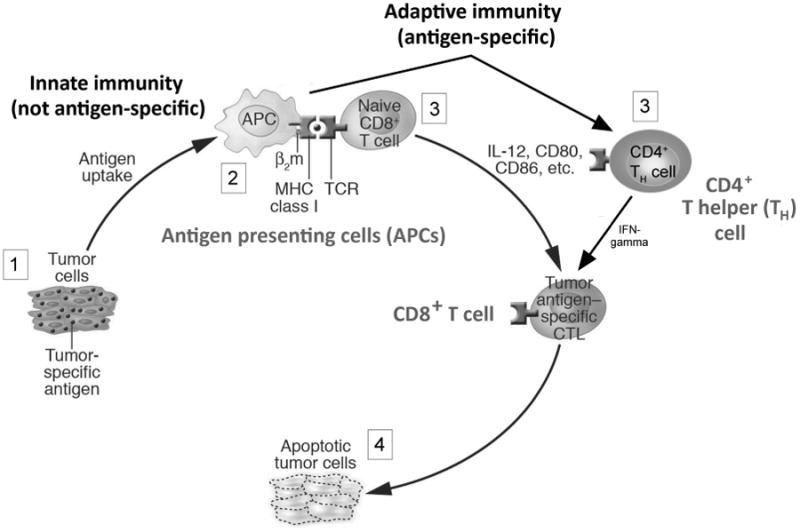Figure 1.

The critical elements of anti-tumor immunity. Tumors express tumor antigens that should be objects of immune attack (1). Antigen presenting cells (2) take up antigen, and process and present them to antigen-specific cells, including CD4+ and CD8+ T lymphocytes (3), that should lead to immune elimination of the tumor (4). Cytokines, such as IL-12, and surface molecules such as CD80 and CD86 provide signals that should promote this tumor-specific immune response. Antigen presenting cells such as dendritic cells, and other non-specific cells suck as natural killer cells and macrophages collectively comprise the innate immune system. Adaptive immunity includes antigen-specific cells such as CD4+ and CD8+ T cells, and B cells (not shown). Despite this sophisticated immune response, which does occur in most cancers, immune elimination does not occur owing to the immune dysfunction shown in figure 2. Figure adapted from (Curiel, 2007).
